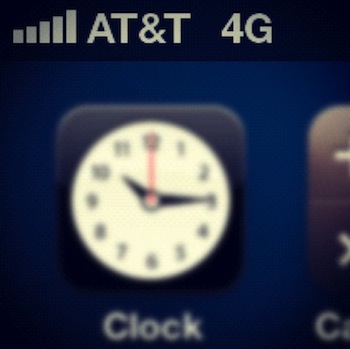Apple wants to turn '3G' into '4G' to solve iPad 3 speed disputes

Apple is currently in a legal dispute down under with the Australian competition regulator, but is attempting a novel way of digging its way out of trouble: by trying to rebrand what "4G" actually means.

The Australian Competition and Consumer Commission (ACCC) is particularly displeased with Apple, and took the maker of shiny rectangles to court.
Apple eventually bowed down to pressure and said it would refund customers who felt they were misled by the 4G branding. It also promised to email customers to inform them that their tablet will not work on Australia's only 4G LTE network --- operated by Telstra --- because it uses the incompatible 1800Mhz band.
But as ZDNet Australia reports, the ACCC is pushing for the courts to force Apple to drop the "4G" bit from the name of the iPad 3.
Here's the catch: Apple's latest defence filing describes how the company believes that existing 3G networks run by Australia's cellular networks "are 4G networks in accordance with accepted industry and regulatory use of the descriptor '4G'".
Yeah; because that's going to work.
The iPad 3 will simply not connect to any 4G LTE network outside the U.S. and Canada, which the ACCC believes the name misrepresents what the device can actually do.
The reason being is due to the iPad 3 only working on the 700Mhz and the 2100Mhz bands of the mobile spectrum. Other countries have already allocated their wireless spectrum to other things --- like in the UK, the 700Mhz band is reserved for free-to-air digital Freeview television, and similarly in Australia, the band is used for analogue television.
UK customers are doubly out of luck, because the wireless spectrum designated for 4G LTE services hasn't been divided up yet. There isn't even a fully functional commercial 4G LTE network on British soil yet.
There's a simple fact here. Terms like '2G', '3G' and '4G' are not industry-defined; however there are clear divisions between them.
The International Telecommunications Union (ITU), which declares what 4G is and isn't, has not yet declared any network to be "4G" yet, giving carte blanche to anyone and everyone to market their products as 4G devices. A 4G LTE network must reach speeds of 100Mbps, but not a single network has achieved these speeds yet.
Ask around, and most people will think '2G' to be GPRS or EDGE speeds, '3G' to be faster 'mobile broadband'-like speeds, and '4G' --- or rather '4G LTE' as it should be specifically called --- to be next-generation 'long-term evolution' speeds.
But 4G isn't just limited to LTE, as there are WiMAX networks too, which still offer blisteringly fast mobile broadband speeds, but are built on different hardware.
Because the industry jumped on the speed bandwagon, there are more divisions between 3G and 4G LTE, such as the middle ground of HSDPA and HSPA+ --- which for arguments sake is like 3.5G.
AT&T threw a spanner in the works by seemingly upgrading 3G-enabled iPhones to '4G' in the Apple iOS 5.1 update. Many were pleased, thinking that their existing iPhone would benefit from the next-generation 4G LTE speeds, not realising that it was nothing more than a marketing ploy.
Confused? So you should be.
The industry hasn't made this easy. The worry is that Apple will get its way and legally define the term '4G' as what should be considered HSPA+ --- or 3.5G --- and add further consumer confusion between '4G' and '4G LTE'.
A hearing is expected to begin on May 2 in the ACCC vs. Apple case.
The ACCC can fine Apple up to A$10 million ($10.5m) --- or three times the value of the revenue collected from the deemed illegal act. The worse case scenario for Apple is if the company fails to fork over its sales figures for Australia, it could be served a fine of up to 10 percent of its Australian annual turnover, which could easily run into high eight-figure sums.
Image credit: Instagram. Article source: ZDNet Australia.
Related:
- Australia vs. Apple: iPad 3 faces sales ban
- Europeans, Australians: Don’t rush to buy a 4G new iPad just yet
- Apple faces European rebuke over Apple’s ‘4G’ iPad claim
- Apple will refund ‘misled’ Australian iPad 3 customers
- CNET: Has iOS 5.1 turned the iPhone 4S into a 4G device overnight?
- ZDNet Australia: Apple seeks to redefine 3G as 4G